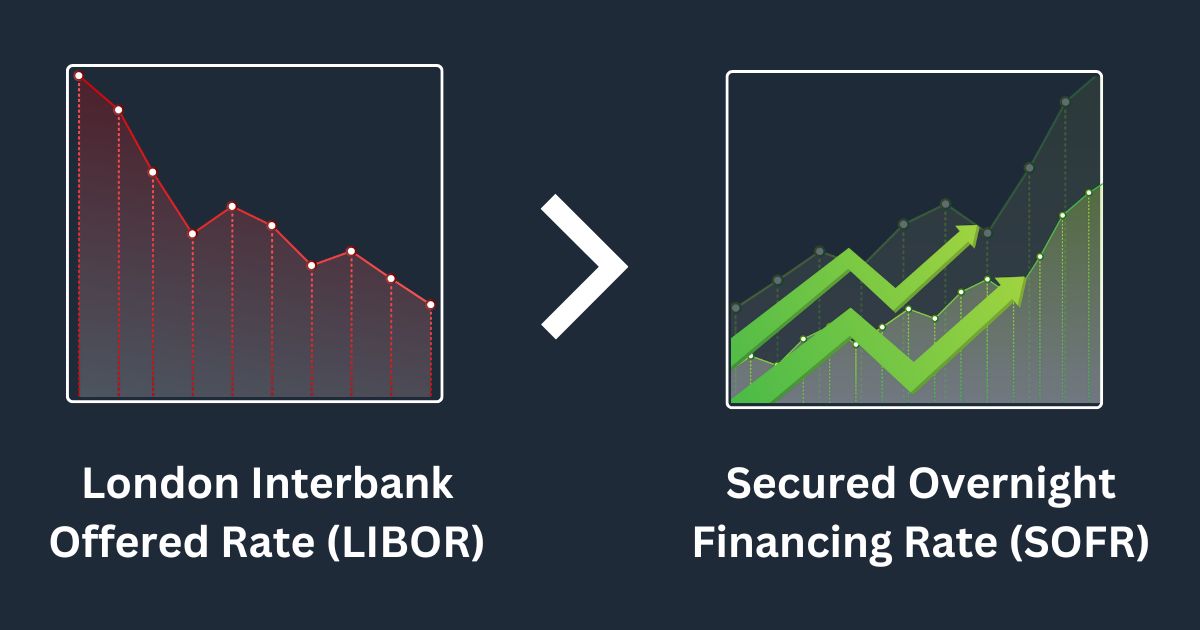In India, there are over 12 million registered MSMEs. The MSME sectors are undisputed to be the main support for the country, ensuring rapid economic growth in the nation. This sector is called the backbone of the Indian economy.
The biggest challenge that MSMEs face is the unavailability of sufficient funds at considerable interest rates. This problem is exacerbated by the fact that banks aren’t inclined to offer loans to micro and small enterprises as they consider this sector to be high-risk, leaving them with low to no access to funds or demand for collateral.
This can be particularly challenging for the budding entrepreneur who may not have collateral to secure funds. For the MSME sector to prosper and continue to contribute to India’s economic success, finding creative solutions to this problem is essential. In this article, we’ll be discussing different msme schemes which will allow small businesses to grow with uninterrupted business growth.
Best MSME Schemes Launched by the Indian Government
1. The Prime Minister Employment Generation Programme

With the aim of creating long-term employment opportunities for unemployed youth and traditional artisans in both rural and urban areas, the Prime Minister Employment Generation Programme (PMEGP) is a bank-financed subsidy programme that offers financial support for starting up new micro-enterprises in the non-farm sector.
The scheme offers margin money subsidy on bank loan amounts ranging from 15% to 35% for projects up to Rs. 50 Lakh in manufacturing and Rs. 20 Lakh in the service sector. The Prime Minister Employment Generation Programme is applicable to individuals above the age of 18 and institutions registered under Societies, Self Help Groups, Charitable Trusts, and Production Co-operative Societies.
The scheme facilitates the online processing of applications and allocation of Margin Money directly by the financing branches and is linked to the Model Village Industries projects by the National Small Industries Corporation.
2. Credit Guarantee Fund Scheme (CGTMSE)
The Credit Guarantee Scheme for Micro & Small Enterprises (CGTMSE) or Credit Guarantee Fund Scheme aims to motivate first-generation entrepreneurs towards self-employment by providing credit guarantee funding for third-party guarantee-free/collateral-free loans.
The scheme offers a guarantee on credits for loan amount up to INR 2 crores, without the need for third-party guarantee and collateral. The guarantee cover ranges from 75% (others) to 85% (Micro Enterprise up to INR 5 lakh). Additionally, 50% of the coverage is for retail activity. The scheme is applicable to both current and aspirant entrepreneurs.
Third-party or collateral guarantee-free credit facilitation by eligible institutions with a maximum credit cap of INR 200 lakhs qualifies for a guarantee under the scheme. Lately, guarantee cover has been made eligible for selected small industries development banks and NBFCs. In cases of default, the trust settles 75% of the amount extended by the lending institutions for credits up to INR 200 lakhs.
3. Micro & Small Enterprises Cluster Development Programme (MSE– CDP)
The Micro & Small Enterprises Cluster Development Programme (MSE-CDP) aims at the growth of MSEs by addressing advancements in sustainable & green manufacturing technology, market access, skills & quality, etc. It creates infrastructural facilities in existing clusters of MSEs and Industrial Areas, setting up Common Facility Centers (for testing, training, raw material depot, effluent treatment, complementing production processes, etc.).
The scheme is applicable to existing entrepreneurs in the form of an SPV. Common Facility Centers include tangible assets such as Processing Centers, Testing Facilities, and Design Centers, including Plug & Play Facilities. Indian government provides support up to 80% of the Project cost of a maximum of INR 30 crores.
Infrastructure Development includes the development of drainage, power distribution, roads, etc. in existing/new industrial estates/areas/Flatted Factory complexes. The government of India provides support up to 70% of the Project cost of maximum of INR 15 crores.
4. Scheme of Fund for Regeneration of Traditional Industries (SFURTI)
The Scheme of Fund for Regeneration of Traditional Industries (SFURTI) aims to support traditional artisans and industries by establishing them into clusters for long-term competitive sustainability.
The government of India provides support up to INR 5 cr. for more than 500 artisans and INR 2.5 cr. up to 500 artisans, enabling the setting up of production facilities with modern machinery, raw material support, and other support for marketing, business development, and digitisation.
The scheme provides both Hard Interventions for physical infrastructure and Soft interventions for the development of skill and market promotion initiatives.
The scheme is applicable to traditional industries and clusters of artisans in sectors such as Handicrafts, Textile, Agro-Processing, Bamboo, Honey, Coir, Khadi, etc. Financial assistance of up to 90% (95% in NER, J&K and Hill Areas) of Hard Intervention cost and the entire cost of Soft Intervention is provided.
5. The Entrepreneurship and Skill Development Programme (ESDP)

The Entrepreneurship and Skill Development Programme (ESDP) Scheme is a government credit program designed to stimulate the expansion of existing micro, small and medium enterprises as well as the promotion of new businesses (micro, small and medium enterprises). Through providing training in entrepreneurship, encouragement for self-employment, and development of skills, its main goal is to promote an entrepreneurial culture across the nation.
The scheme is open to all aspiring and existing entrepreneurs, with a particular focus on marginalised groups such as SC, ST, women, differently-abled individuals, ex-servicemen, and people belonging to the BPL category. By offering training in a variety of fields, including agro-based products, hosiery, food and fruit processing industries, and mechanical engineering workshops, the scheme aims to entrepreneurial and managerial development of different sections of society.
An entrepreneur who have already established businesses can benefit from the scheme as well. The ESDP Scheme provides management capacity-building training to the existing entrepreneur and their supervisory staff in areas such as industrial management, human resource management, marketing management, export management, materials management, and financial or working capital management.
Suggested Read: How to Start Export Business in India 2024 | Detailed Guide
6.Skill Upgradation and Mahila Coir Yojana under Coir Vikas Yojana:
The Skill Upgradation and Mahila Coir Yojana is a government scheme implemented under the Coir Vikas Yojana. The primary objective of this scheme is to provide training and create value addition to the potential workers in the coir industries, such as coir artisans and potential entrepreneurs. The scheme also aims to create self-employment opportunities for rural women artisans involved in the processing of coconut husk.
Skill Upgradation and Mahila Coir Yojana offer a range of benefits, including training for supervisors, instructors, and artisans in the coir industries. Additionally, the scheme provides support for the development of the coir industry through organising EDPs, workshops, and seminars. Exposure tours are also conducted for rural artisans to familiarise them with the newly incorporated technologies in the coir sector.
The scheme is open to all existing and aspiring entrepreneurs, allowing individuals to access the technologies available with the Coir Board by paying only a nominal processing fee. Furthermore, the scheme provides support for training, incubation, handholding, and support for setting up new units, along with support from R&D Institutes of the Board.
7. Procurement and Marketing Support (PMS) scheme
PMS is a government initiative aimed at developing the marketability of services and products in the MSME sector. The scheme promotes new market access initiatives by organising or participating in National/International Trade Fairs/Exhibitions/MSME Expo, among others. It also aims to create awareness about various marketing-related topics, such as e-marketing, GeM portal, GST, and others.
The PMS scheme offers several key benefits to existing entrepreneurs. It involves the involvement of individual MSEs in domestic exhibitions/trade fairs, which can help in showcasing their products and services to a wider audience.
The scheme also supports the development of haats, adoption of modern packaging techniques, bar codes, and e-commerce platforms to help micro and small enterprises enhance their marketability. Organizing events like Domestic Trade Fair & Exhibition, awareness programs, national & international workshops & seminars, and vendor development programs can help entrepreneurs build capacity and develop their retail outlets.
The PMS scheme is applicable to existing entrepreneurs and provides several detailed initiatives to help them expand their reach across the country. The scheme’s focus on market access initiatives and capacity building can help entrepreneurs to enhance their competitiveness and grow their small businesses.
8. International Cooperation (IC) Scheme
The International Cooperation (IC) Scheme aims to develop the export marketability of MSMEs by facilitating their participation in international exhibitions, fairs, and conferences, and providing market intelligence and reimbursement of export-related costs.
The scheme covers three sub-components: Market Development Assistance of MSMEs, Capacity Building of First Time MSE Exporters, and Framework for International Market Intelligence Dissemination. The scheme provides opportunities to micro and small enterprises to update themselves continuously, meet challenges due to technology upgradation, demand, and new markets.
The scheme is applicable for Ministry of MSME, State/Central Government Organizations/Institutions, and Registered Industry/Enterprise Associations, etc. The IC Scheme involves organizing international events, delegations, and conferences both physically and virtually, relevant to the MSME sector in India and abroad.
9. A Scheme for Promoting Innovation, Rural Industry & Entrepreneurship (ASPIRE)

By establishing a network of technology and incubation centres in remote and underprivileged communities, ASPIRE aims to promote innovation and entrepreneurship. The scheme strives to impart skill development programs to create wage/self-employment opportunities in the agro-rural sector.
The key benefits include the setting up of Technology Business Incubators (TBIs) and Livelihood Business Incubators (LBIs) to skill youths for their own incubation and micro enterprises, financial support for procuring plant and machinery, and operational expenditure support for running incubation and skill development programs.
The scheme is applicable to any agency/institution of the Government of India/State government or existing training centres under Ministries/Departments of the Government of India/State Government, industry associations, and academic institutions. Private institutions with experience in executing incubation and/or skill development programs may also be eligible to set up an LBI.
10. Modified Market Development Assistance (MMDA) Scheme
The Modified Market Development Assistance (MMDA) Scheme under Khadi Vikas Yojana aims to add value to Khadi by decontrolling and de-linking the sales price from the Cost Chart.
This will enable the selling of products at market-oriented prices and reorient the activities of Khadi Institutions, ensuring the quality of Khadi to customers and increasing artisans’ earnings. The scheme is applicable to Khadi Institutions, Spinners, and Weavers.
Under the scheme, a grant of 30% is provided on the Prime Cost of Khadi & Polyvastra. Khadi Institutions undertaking production as well as sales activity shall be entitled to 60% of MMDA, with the remaining 30% distributed to Spinners & Weavers and 10% to Karyakartas/other Artisans.
11. Work-Shed Scheme for Khadi Artisans under Khadi Vikas Yojana
The Work-Shed Scheme for Khadi Artisans under Khadi Vikas Yojana aims to empower and facilitate khadi spinners and weavers by providing them with a sustainable path for growth of a business, generation of income, and a conducive work environment.
The key benefits of the scheme include a better work environment, increased storage space, and more working space for artisans, which would enhance their efficiency and productivity, leading to an increase in their earnings.
The scheme is applicable to Khadi Artisans and Khadi/polyvastra-producing institutions. Under this scheme, financial support would be provided to Khadi artisans belonging to the Below Poverty Line (BPL) category.
The scheme would cover artisans in states where BPL cards have been issued, and identification for eligible artisans would be made through a fair and transparent process in states where BPL cards are not being issued. The benefits under the scheme can only be availed by artisans who work for at least 100 days a year.
12. Pottery Activity under Gramodyog Vikas Yojana (GVY) scheme
The objective of this scheme is to increase the income of pottery artisans by providing training for the development of skills, modern equipment, and market linkages. The scheme includes a training program for traditional and non-pottery artisans, provision of equipment such as Pottery Wheel and Clay Blunger, and assistance in setting up a new unit under the PMEGP scheme.
The scheme is applicable for artisans aged between 18-55 years, with a preference given to SCs/STs/Women/BPL category candidates. The State Director of Khadi and Village Industries Commission should be contacted for further information.
13. Promotion of MSMEs in NER and Sikkim
The Promotion of MSMEs in NER and Sikkim scheme aims to provide financial help for infrastructure development to enhance productivity, sustainability, competitiveness, and growth in Northeastern Region and Sikkim.
The scheme focuses on creating upgraded infrastructural facilities for natural resources such as fruits, spices, agri, forestry, sericulture, and bamboo and developing the tourism sector and technology upgradation. The benefits include common and developed infrastructure facilities to develop new products and processes, including toolings to boost tourism in the region.
The scheme is applicable for State Government or any State Govt. organisation engaged in the promotion of micro and small enterprises. It offers financial assistance of 90% with a maximum project cost of INR 15 crores for setting up new and modernisation of existing Mini Technology Centers, development of new and existing Industrial Estates, and projects related to the tourism sector.
14. ZED Certification Scheme
The ZED Certification Scheme is designed to encourage small and micro enterprises to manufacture high-quality products using zero-defect and zero-effect practices, thereby supporting the Make in India initiative.
The scheme provides various benefits, including subsidies on the cost of certification, financial assistance for testing/certification, handholding for consultancy and technology upgradation, and graded incentives post certification. MSMEs owned by women, SC/ST entrepreneurs, or those located in NER/Himalayan/LWE/Island territories/aspirational districts are eligible for additional subsidies.
The scheme is open to all entrepreneurs registered with the UDYAM registration portal, and it aims to promote the adoption of the latest technologies and eco-friendly manufacturing practices, improve productivity, and increase public awareness of zero-defect and zero-effect products. The ZED Rating and Grievance Redressal Portal helps in identifying successful MSMEs and facilitating public demand for such products.
15. Lean Manufacturing Competitiveness Scheme
The Lean Manufacturing Competitiveness scheme aims to enhance the domestic and global competitiveness of MSMEs through the application of various Lean techniques. Existing entrepreneurs registered with the UDYAM portal, as well as CFCs under SFURTI and MSE-CDP schemes, are eligible to apply.
The scheme provides financial support for implementing Lean manufacturing techniques, with a 90% subsidy of up to INR 2,16,000/- on the total cost of implementation. The scheme has three levels of certification: Basic, Intermediate, and Advanced, with costs ranging from free to INR 2,40,000/-. The certification period ranges from 2 months for the Basic level to 12 months for the Advanced level. Eligible MSMEs will have to form a Group of Enterprises (GoE) to achieve the Intermediate level.
16. MSME – Innovative (Incubation, IPR and Design)
The MSME – Innovative (Incubation, IPR and Design) scheme aims to promote innovation in the MSME sector by providing facilities for concept development, design competitiveness, protection and commercialisation of intellectual creations.
The scheme provides funding for incubation (up to INR 15 lakh per idea), the purchase of pertinent equipment (up to INR 1 crore), design projects (up to 75% of project cost), student projects (up to 75% of project cost), and IPR (up to INR 1 crore grant).
The scheme is open to MSMEs, individuals, and students with innovative ideas. The objective is to create awareness amongst MSMEs about India’s innovation and encourage them to become MSME champions. The scheme unifies three sub-schemes with a single-purpose approach to promote innovation in the MSME sector.
17. Digital MSME

By encouraging MSMEs to embrace digital tools, applications, and technologies into their production and business operations, the Digital MSME scheme seeks to empower MSMEs and increase their competitiveness in both domestic and international markets. The scheme offers customized digital solutions designed to meet the diverse requirements of the eco-system, with the goal of accelerating MSME performance, reducing costs, and improving efficiency.
The scheme is applicable to existing entrepreneurs registered with the UDYAM registration portal. By standardising business processes, improving delivery time, reducing inventory carrying costs, enhancing productivity and quality of production, and improvingg customer satisfaction, the scheme is expected to benefit a large number of MSMEs. The scheme also aims to provide digital identity to the MSMEs, software interventions, and capacity building, making them compatible with e-markets.
Conclusion
The Indian government has introduced various MSME schemes to support and promote the growth of MSMEs. From financial support to development of skill and technological support, these initiatives aim to improve competitiveness and create more job opportunities. With continued government support, the MSME sector has the potential to make a significant contribution to Indian economy in the years to come.
Suggested Read:
- What is SSI? Small-Scale Industries Explained
- Best 10 Instant Personal Loan Apps in India
- What is Loan Resource App: Benefits, Comparison & How to Apply
- 70+ Best RBI Approved Loan Apps In India [2023]
- Fake loan app list: 500+ apps you should avoid at any cost
- MSME Advantages and Disadvantages: Unlocking the potential of MSMEs in India
FAQs
What are the schemes of MSME?
Here are the top schemes of MSME in India:
- Credit Guarantee Fund Scheme
- Micro & Small Enterprises Cluster Development Programme (MSE– CDP)
- The Entrepreneurship and Skill Development Programme (ESDP)
- Procurement and Marketing Support (PMS) scheme
- A Scheme for Promoting Innovation, Rural Industry & Entrepreneurship (ASPIRE)
- Modified Market Development Assistance (MMDA) Scheme
- ZED Certification Scheme
What is MSME subsidy scheme?
For the introduction of well-established and upgraded technology in the particular sub-sectors or goods permitted under the scheme, MSMEs are given this subsidy. This scheme offers a 15% upfront discount on institutional loans up to Rs. 1 crore.
Which bank is best for MSME loan?
Best banks for MSME loan are:
1. ICICI Bank
2. State Bank of India
3. Canara Bank
4. Union Bank of India
5. UCO Bank
6. Punjab National Bank
What are the 3 types of MSME loans?
Below are the types of MSME loans
- Bank Guarantee.
- Pradhan Mantri Mudra Yojana.
- Term Loans.
- Line of Credit/ Overdraft Facility.
- Asset Backed Loans.
- Business Loans specifically targeting Women Entrepreneurs.
- Bill Discounting or Invoice Discounting.
- Point of Sale Finance.
Who Cannot apply for MSME?
If your firm doesn’t have an annual turnover of 5 crore or more and investment is less than 1 crore, then you can’t apply for MSME.
















